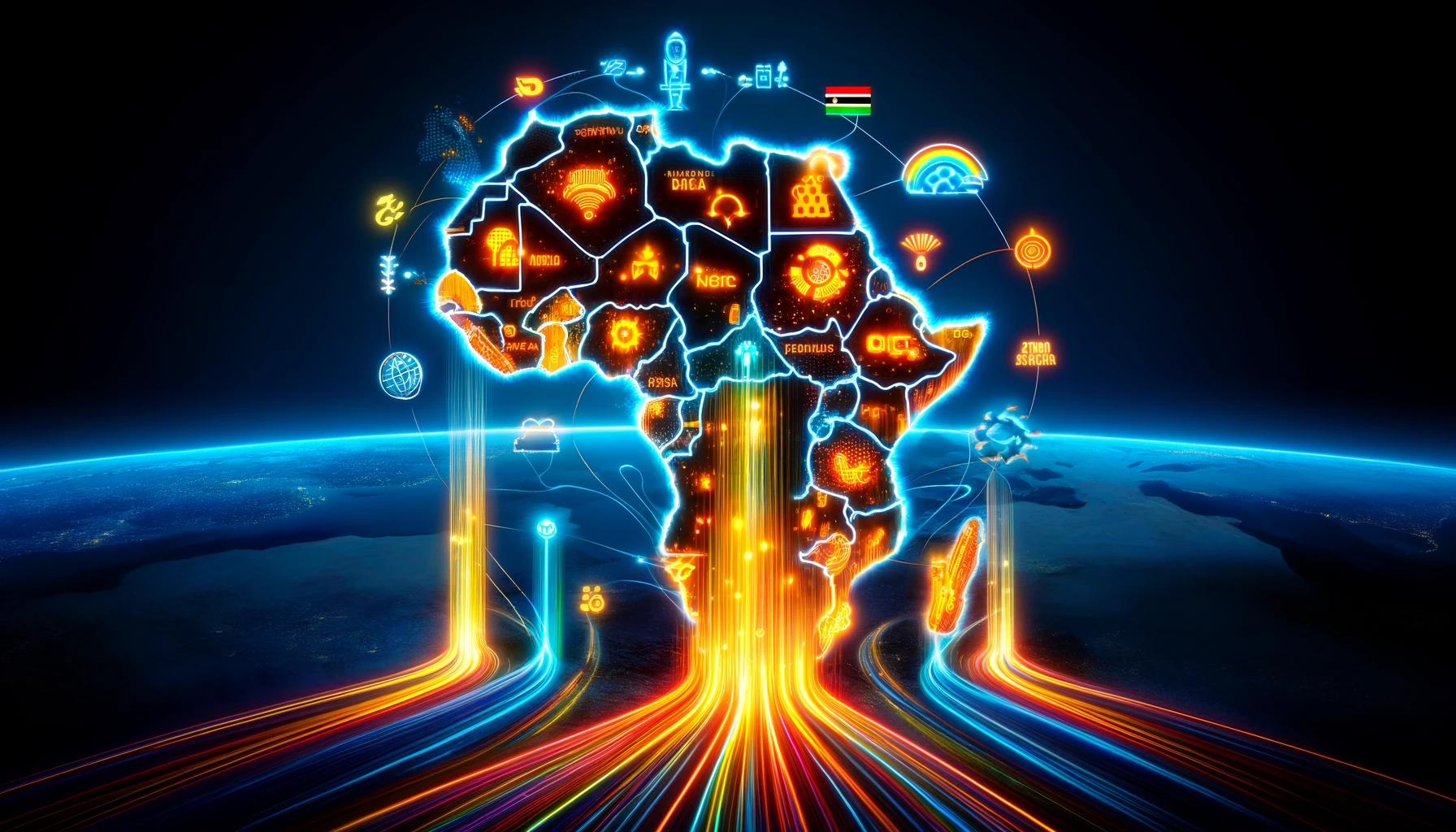Despite tech giants’ significant investments in digital infrastructure, Africans need help with slow internet speeds and high data costs.
Google and Meta are making substantial strides in Africa’s digital landscape. Google’s inaugural cloud data centre on the continent, which has been operational since January in Johannesburg, South Africa, is a testament to its commitment.
“The big U.S. tech giants have recognized the existing connectivity gaps and see the need for additional investment as a major business opportunity,” said Tevin Tafese, a data scientist at the German Institute of Global and Area Studies (GIGA).
According to Tafese, prominent examples include Google and Meta, which are investing in major cable projects to reduce the cost of accessing their services in a largely untapped African market.
Africa’s First Fiber-Optic Route to Australia
In 2022, Google pledged $1 billion to propel Africa’s digital transformation, which includes the development of undersea cables for faster internet connections. One such project, Umoja (Swahili for unity), is set to establish the first fibre-optic cable linking Africa directly to Australia, promising significant improvements in internet connectivity.
This cable will run from Kenya through Uganda, Rwanda, the Democratic Republic of Congo (DRC), Zambia, Zimbabwe, and South Africa, continuing along the Indian Ocean bed to Australia.
Better, Faster, Cheaper Internet
“These projects are expected to significantly improve internet access in Africa, increase connection speeds, and reduce prices,” said Tafese. Reliable internet access is crucial for increased productivity and higher employment rates.
Key players in African internet infrastructure include multinational telecom giants such as MTN (South Africa), Orange S.A. (France), Vodafone Group (U.K.), and Bharti Airtel (India).
The concept of leapfrogging — bypassing traditional stages of technological development in favour of more advanced solutions — has been central to the widespread adoption of mobile phones in Africa, bypassing fixed landline networks.
“Technology has been leapfrogged,” Tafese said. “Except for South Africa and a few North African countries, all African nations have adopted mobile networks instead of landlines.”
Leapfrogging is also evident in internet infrastructure expansion, with high-capacity fibre-optic cables being laid instead of older copper cables.
Anriette Esterhuysen, an I.T. expert and consultant at Johannesburg’s Association for Progressive Communications (APC), welcomes these developments. “It’s good that these investments are being made, that capacities are being increased, and that the large technology industry is recognizing the potential of African markets,” she said.
Despite the positive strides, Esterhuysen cautions that digital inequality is on the rise, even as more people gain access to the digital sector. “Those without access, devices, skills, or good networking are even more marginalized than before the digital boom,” she warns, underlining the pressing need to bridge this gap.
Unlocking Digital Access
Increased investment promises to expand digital engagement. By bolstering infrastructure and accessibility, more Africans can benefit from the digital realm.
While the current digital landscape may be profitable for companies and beneficial for the digitally enabled elites, it falls short of fostering wider socioeconomic development. As Esterhuysen points out, the true value of digital infrastructure lies in its potential to empower all citizens, not just a select few.
Internet usage varies significantly across Africa in 2024. Morocco boasts 90% usage, while South Africa has 75%. The Central African Republic has only 11% of its population online due to infrastructure challenges and costs. Ghana, an early adopter, connected to the World Wide Web in 1992.
High Costs of Cellphone Plans
Sub-Saharan Africa has the world’s most expensive mobile data prices, which widens the digital divide between those with and without internet access.
The United Nations Broadband Commission for Sustainable Development aims to bring the cost of entry-level broadband services below 2% of monthly gross national income (GNI) per capita by 2025. However, achieving this goal still needs to be completed in many countries.
In Ghana, for example, high data costs deter many people. Divine Puplampu, a software developer and co-founder of Stimulus Technologies in Accra, suggested that the government “milks” its citizens with high cellphone fees and tariffs.
In Mozambique, hundreds of people recently protested the high cost of internet access, marching to the telecommunications regulator’s (INCM) headquarters in Maputo.
“Governments don’t want to understand the importance of empowering every citizen with internet access and the ability to speak their mind,” Puplampu said. “Sometimes I am tempted to believe that governments are afraid of too much access to information because it could affect their power.”
He further envisions Africa as a potential hub for digital services and work for companies in Europe and the United States. However, he underscores the crucial role of governments in ensuring stable internet and subsidizing network development, a call to action for policymakers.
For more tech news and insights, visit Rwanda Tech News, and explore similar topics and trends in the world of technology.



